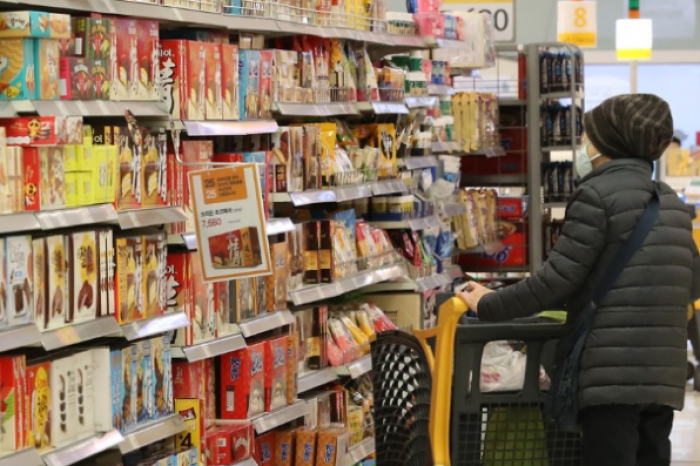South Korea’s low-income households are feeling the pinch of rising food prices amid the COVID-19 pandemic, according to a report by a local think tank.
The report, released on Wednesday by the Korea Economic Research Institute, a research arm of the Federation of Korean Industries, showed that Korea’s Engel coefficient—a measure of food spending as a proportion of total spending—rose 1.4 percentage points to 12.8% in 2021 from 11.4% in 2019 before the pandemic hit.
That was a bigger increase than the average of five major economies—the US, Germany, Japan, Britain and France—which saw their Engel coefficients rise by 0.9 percentage point to 8.6% over the same period. The Engel coefficients of the US, Germany, Japan, UK and France rose by 0.4, 1.0, 0.9, 1.2, and 0.8 percentage points, respectively, during the same period.
The coefficient is often used as an indicator of living standards and poverty levels, as poorer households tend to spend more of their income on food than richer ones.
The report attributed Korea’s high Engel coefficient to soaring food prices, which were driven by supply disruptions and increased demand due to the pandemic. According to data from the Food and Agriculture Organization, Korea’s food consumer price inflation rate averaged 5.2% annually in 2020-2021, more than triple the average of 1.7% for the five major economies.
The report said Korea’s low food security level made it vulnerable to global supply chain shocks such as COVID-19. The country relies on imports for most of its major agricultural products. Its grain self-sufficiency rate was 19.4% last year, the lowest among the five countries.
Write to Jae-Fu Kim at
hu@hankyung.com



